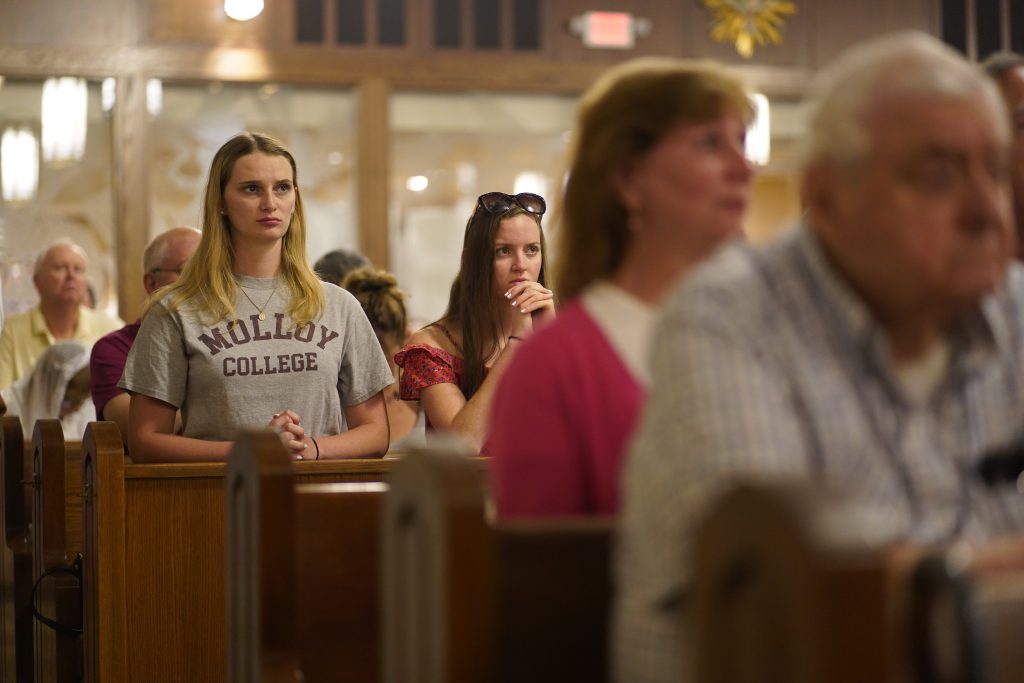Election season is here. Each of us likely has a laundry list of things we wish our elected leaders would fix. But there are other concerns that politicians cannot really do much about, because they are too vast and complex for even a coalition of governments, NGOs, and nonprofits to fix. And then there are other problems where governments have no particular expertise, because they are at heart spiritual matters.
In a recent conversation I had with a Harvard social scientist, the phrase “epidemic of loneliness” came up. After the conversation, a quick Google search for “epidemic of loneliness” showed that the reality is, as we say, “a thing.” As attractive as it might be to blame COVID for this phenomenon, the evidence suggests otherwise. Loneliness is a long-term social sickness, something that the pandemic certainly made worse but didn’t cause.
Academic studies and investigative journalism are both presenting evidence that young people are among the worst affected by feeling isolated. Pastorally, I’ve been aware for years that making real friends (“finding my people”) is a serious concern among college students and young adults. Personally, I’m inclined to think that even though communications technology promises to create community, it often ends up creating isolation.
In “Fratelli Tutti” (“All Brothers”), Pope Francis points out very firmly that “digital relationships … do not demand the slow and gradual cultivation of friendships. They have the appearance of sociability. Yet they do not really build community. … Digital connectivity is not enough to build bridges. It is not capable of uniting humanity.”
At the heart of the question of young people’s loneliness is the way in which society as a whole seems to be becoming more fragmented. The causes and effects are many: weakened family structures (especially intergenerationally), mistrust of authority of all kinds and heightened individualism; retreating into circles with others who have exactly the same opinions, and avoiding those who think or live differently.
Our society is also experiencing a significant decline in religious participation, increased political polarization, and the pervasiveness of “victim culture” and “virtue signaling” — all fueled by the unreflective, knee-jerk world of social media.
So what can be done? The evidence is significant enough for think tanks like the Aspen Institute to take it seriously. Harvard’s Human Flourishing Program uses social science data to study well-being, a condition which may include “family, friendship, virtue, community, work, beauty, forgiveness, religion, purpose and meaning.” To my eyes, those are all words the Church has used for 2,000 years. Its research indicates a strong connection between feeling connected with others and attending religious services — something that mere religious identity or private spiritual practice doesn’t seem to do to the same degree.
It’s always striking when academics’ research points out things that the Church knows from long experience.
This is not a smug “I told you so” moment, but an opportunity to build bridges and to put the Church’s expertise in all that is truly human to work. Indeed, the researchers in Harvard’s program are building bridges with Vatican initiatives that are concerned about practical solutions to isolation and fragmentation, and fostering human well-being in all dimensions of life.
I’d argue that since God created us for companionship (“It is not good for the man to be alone,” Genesis 2:18), social isolation is what happens when we can’t follow the blueprint of creation — or don’t. The philosopher Jean-Paul Sartre famously said that “hell is other people.”
Christian faith says the complete opposite: Meaningful connection with others is a foretaste of heaven. Our work, both as individual Catholics and as parishes, is to move the needle in the direction of heaven, seeking constantly to build deeper connections, especially with people who suffer from isolation, and providing places of belonging.
There are different varieties of loneliness. This side of heaven means that feeling some degree of loneliness is part of the human condition, a side-effect of Adam and Eve’s choice to break away from the connection with God. Some affect our physical health and our capacity to thrive. Others make us grow in resilience. Yet others are really a form of desire leading us on to the deepest sense of connectedness.
Humans, said St. Augustine, have a God-shaped space in us that only God is big enough to fill. We are born with a restless heart that can only be at rest when it rests in God.
The social scientists seem to agree.

